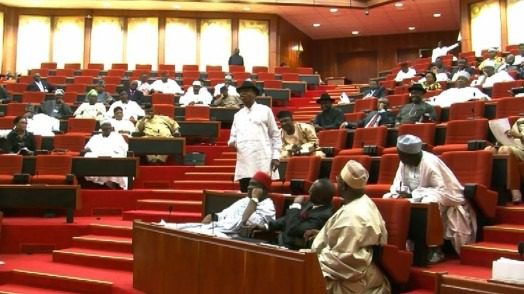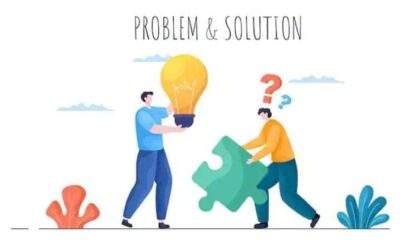National Issues
Fighting Social Anomalies with Information Campaigns in Nigeria

Media are relatively powerless when it comes to bringing attitudinal change; especially behaviors entrenched in the psychological sphere of the uninformed within a society. However, media can pierce armors of preconceptions if its targets, themes, appeals, and vehicles are wisely aligned. Therefore, it is possible for information campaigns to succeed in reducing traditional social ills such as corruption, sexual harassment, terrorism, and kidnapping through certain set goals.
Often times those with the leadership responsibility to address Nigeria’s endemic social problems have repeatedly been crippled – primarily by their own psychological disposition – thinking that nothing can be done about ‘institutionalized social ills.’ It is not rare to hear Nigerian government officials say: “It did not start with our administration, it has always been there before us.” Especially when they see how deep these problems have eaten Nigeria’s social fiber, those officials either surrender or blame the apathy of Nigerians. Put in another way; it is similar to a reputable doctor refusing to treat an ailing patient because he is unsure whether or not he possesses the required medical skills, or a ‘professional’ doctor blaming the patient for his inability to cure a curable illness.
Today, corruption has remained the bane of Nigeria’s society, festering and producing other social anomalies such as poverty, kidnapping, and terrorism among others. In most cases, Nigerian leaders blame the problem itself or make attempts to ‘solve’ the symptoms without looking at the causation and the correlations. In addition, there are usually no sets of goals from top-to-bottom or from bottom-to-top on how the problem can be addressed in the mutual benefits of the government and the governed.
It must be stated that for information campaigns against social ills to succeed, behavioral intentions against endemic social problems should be motivated and rewarded. The reward not only being financial incentives, but also reward of justice through punishment on any offender when reported, investigated, and found guilty.
This does not mean that financial incentives cannot be used as inducement to encourage the fight against social problems.
In addition, the government must implement transparent social mechanisms for reporting, investigating, and punishing offenders. This is where the motivation and reward come in again. Without such social mechanisms, peoples’ intentions to resist and report these problems would not materialize into unilateral actions. But more importantly, the institutions, organizations, and groups entrusted with the responsibilities to bring accountability on offenders must be persons of proven characters; unbiased-patriotic Nigerians drawn from criminal experts, religious leaders, lawyers, and students.
With the implementing social mechanisms in place, effective national campaigns with the right themes and appeals would be complementary. These campaigns could raise awareness of sexual harassment at work places and schools. It could also battle kidnapping, corruption, and drunk driving. These should not be a short-term information campaigns, however: effectiveness is evaluated within certain intervals.
The Nigerian government should initiate campaign programs at schools, work places, churches, mosques, clubs, unions, and motor parks with the right media vehicles. In addition, the government should create synergy with Nigerian filmmakers, writers, teachers, and bloggers to promote those social values that could bring about attitudinal and behavioral changes.
To mold behaviors of the citizens into habit patterns against social ills, there should be equal participation by all Nigerians. This is why responsible citizenship should be seen as a product that should be sold to all Nigerians through utilizing the right marketing strategies, and through engaging Nigerians in bit-by-bit units of the solutions.
Without identifying the different targets groups for these social problems and the right media vehicle to reach them, these efforts could lead to little or no results. To ensure lasting change, the government would have to determine which region of the country is faced with a particular social problem, which age groups are mostly affected or engaged in such acts, and what media is accessible to the identified target groups. It will not be sufficient to keep increasing the flow of information without identifying the necessity of its dissemination.
No doubt there is a progression in information technology, which reduces the physical barrier to communication within Nigeria’s information sharing environment to aid exposure information and increases knowledge against social problems. However, the pace at which this occurs seems to be very slow, attributable to deliberate attempts of continuing impediment of the supply of information to the detriment of public knowledge. Most of Nigeria’s current leaders are still remnants of the old-schooled dictators who fear the new generation of Nigerians that are empowered by new media and information to reimburse the damages they have inflicted upon the nation.
Granted, millions of Nigerians have widespread access to mobile Internet and to some social media already: all of which can be effective vehicles to information campaigns against some of the social problems. But most Nigerians are still finding it difficult to have access to affordable and quality Internet that would enable information sharing and to raise their voices against certain social ills. And not many of them can use the available mobile Internet to browse the web to carry out useful research that could aid their decisions and actions. Providing adequate communication tools is necessary for effective information campaign in Nigeria.
Again, there is the importance of motivation to achieving effective information campaign. Rather than spending millions of dollars in amnesty – rewarding criminals, the Nigerian government can redeploy the resources as incentives for preventing crimes in the society. The elderly and unemployed in the society could receive some form of social benefits, while engaging these into useful services for their community – to be ears and eyes for law enforcement authorities. This is where appropriate social mechanism becomes very handy. These people must be properly communicated on where and how they should report any vital information against crimes around them without any difficulty to consummate their motivation.
At schools – from elementary to university – students should be adequately informed and motivated to report instances of sexual harassment and dangerous activities that put lives in dangers without giving out their identity, (or if necessary, their identity must be protected when cases are reported). Similar guidelines would apply at work places to protect employees from being sexually harassed by randy bosses.
It is time for Nigeria to sell responsible citizenship as a product through traditional and new media by making conscious attempt to reposition the country’s image through information campaigns that would touch the life of all Nigerians. Because the problems that decrepit Nigeria today are no longer that of the elites’ massive corruption, but of the limitations to the people who fight the good fight.
Find me on twitter @reesful



















